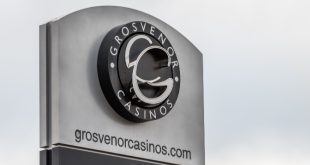
The First Tier Tribunal Decision in the case of ‘Daub Alderney Limited v The Gambling Commission’ was reported on the Commission’s website on 13 December 2022.
This arose from an appeal against a decision relating to the quantum of a financial penalty for regulatory compliance breaches imposed by a Panel of Gambling Commissioners.
The dismissal of the appeal by Tribunal Judge J Findlay represented a wholly unsatisfactory outcome for the Rank Group following its acquisition of Daub Alderney and other companies within the Stride Gaming Group in 2019. Some will have sympathy with Rank, particularly in light of pre-acquisition assurances it received from Gambling Commission officials regarding Daub Alderney’s regulatory compliance standards.
Clearly others (including the Commission and the Tribunal Judge) did not have such sympathy, considering that Rank was aware it was entering into a high-risk transaction, bearing in mind that Daub Alderney had received a multi-million pounds fine for AML and social responsibility failings just months beforehand.
However, I believe it would be a mistake if the First Tier Tribunal Decision is viewed in no wider context than that. I say that because the Decision contains some illuminating insight on Gambling Commission practice and, for the benefit of those unfamiliar with relevant licensing-related case-law, reference to certain key issues of law that will serve to better inform them if they are ever considering whether to appeal a Gambling Commission decision.
Background
The background circumstances to the case are set out in a Clifton Davies Consultancy website posting of 1 September 2021.
In summary:
- a £7.1million fine for AML and social responsibility failings was imposed by the Gambling Commission on Daub Alderney (prior to Rank taking over ownership) in November 2018;
- in March 2020, further such failings – described as being ‘of a lesser degree’ than those that had been found two years earlier – were identified by the regulator during a compliance assessment of Daub Alderney, a ‘good proportion’ of which had occurred before Rank acquired the Stride Gaming business in October 2019;
- those failings led to a review of Daub Alderney’s operating licence (commenced five months following the acquisition by Rank), at the conclusion of which Commission officers invited representations on imposition of a financial penalty of £3million, of which £1.35million represented (a) the regulator’s assessment of the financial gain to Daub Alderney and (b) the immediate financial detriment to ten customers whose accounts had been reviewed by the Commission;
- in the absence of Daub Alderney’s agreement on the quantum of such a penalty, a hearing before a Panel of Gambling Commissioners took place in June 2021, following which (in July 2021), a penalty of £5.85million was imposed (i.e. nearly twice the sum in relation to which Commission officers had previously invited representations);
- In its written decision, the Panel remarked that the penalty imposed by the Commission in 2018 had not been an effective deterrent;
- Subsequent comments on the Panel’s decision were made by:
-
- Helen Venn (then an Executive Director of the Gambling Commission), who said: “the Licensee’s culpability, and the requisite penalty reflecting that culpability, cannot be affected by the fact that its shares have now passed from one set of investors to another. The Licensee does not escape or mitigate the consequences of its actions because its shares are sold”; and
- Rank, that said that it: “considers that there are both equity and public policy issues raised by this case and will be seeking an appeal to the First-tier Tribunal”.
The case presented by Daub Alderney to the First Tier Tribunal
When the appeal came before the First Tier Tribunal for hearing on 20 April 2022, Rank’s legal team (representing Daub Alderney) contended that the Panel of Gambling Commissioners had failed to take account of factors relevant in mitigation of what it called an ‘excessive, unfair and disproportionate’ financial penalty, including:
- pre-acquisition assurances given by the Gambling Commission to Rank in respect of Daub Alderney’s regulatory compliance that had ‘provided considerable comfort to Rank in relation to proceeding with the acquisition’,
- the limited time post-acquisition that the new management team had within which to improve regulatory compliance,
- the burden of the financial penalty, that was borne by neither the previous management (who had been responsible for the breaches) nor the previous shareholders (who had benefited from the breaches), whereas Rank had suffered ‘very substantial losses’ because of the ‘overpayment’ it had made to Daub Alderney’s shareholders, and
- the ‘public good’ that flowed from Rank’s acquisition of Daub Alderney in the sense of (a) ‘new and more responsible ownership’ promoting the licensing objectives under the Gambling Act 2005 and (b) such takeovers significantly reducing social harms.
It appears that the above-mentioned ‘pre-acquisition assurances’ were received from Commission officials whilst Rank was conducting its due diligence in relation to Daub Alderney’s compliance with its regulatory obligations. In this respect, somewhat unusually, Rank was expressly told that it was “very satisfied with the progress made by Daub”, “very content with where [Daub were] on compliance” and was “not aware of anything which would threaten Daub’s licence”.
Rank’s legal team also sought to argue that some balance must be struck between (a) the principle that ‘a financial penalty is aimed at the offending company rather than the acquiring company’ and (b) what it termed the ‘strong public interest’ that lies in [the Gambling Commission] not imposing a penalty regime that actively discourages ‘the acquisition of smaller operators by larger operators with demonstrated commitment to adherence to licence conditions’.
The case presented by the Gambling Commission to the First Tier Tribunal
In response, the Commission contended that it had placed reliance on ‘repeatedly recognised’ case-law that:
- ‘decisions of statutory regulators are not to be lightly reversed – they are only to be overturned if they are wrong’,
- the burden of proving that such decisions are wrong lies on the appellant, and
- regulatory decisions are not of the ‘heads or tails’ variety; instead “they are evaluative – which is to say that they are matters of judgment rather than pure fact”.
Citing a 2011 Court of Appeal judgment well known to licensing lawyers – R (Hope and Glory Public House Ltd) v City of Westminster Magistrates’ Court – the Commission acknowledged that “in some cases, for example because of some new evidence, a decision may now be wrong even though it was not wrong at the time when it was made”. However, the Commission contended that this did not apply in the case of Daub Alderney’s appeal because the content of the ‘one short witness statement’ it had filed in support of its appeal was not new.
The Commission submitted that the Panel’s decision was not wrong, arguing that it represented “a fair and reasonable regulatory response to [Daub Alderney’s] serious and long-lasting breaches, which were committed in defiance of an earlier warning and deterrent financial penalty”.
Information disclosed regarding the decision of the Panel of Gambling Commissioners
When announcing the £5.85 fine in September 2021, the Gambling Commission did not make public the Panel’s decision, which we now know (from the First Tier Tribunal Decision) ran to 32 pages in length.
The Decision of the First Tier Tribunal Judge has shed light on aspects of the Panel’s decision that had not previously been made public. They include the following in relation to mitigating factors of the type that Rank’s legal team sought to contend had not been taken into account (as described above), i.e. the Panel:
- considered that whilst opinions expressed by officials of the Gambling Commission could be a mitigating factor, that was not so in this case because (a) the official in question was answering questions ‘as best she could’, (b) an ‘audit’ (which I take to mean the Commission’s compliance assessment that commenced in March 2020) was still to take place and (c) the Commission was ‘not aware’ of anything that would threaten Daub Alderney’s licence;
- did not consider it a mitigating factor that the financial penalty would not be paid by those who were in place at the time of the breach (i.e. the previous management and the previous shareholders);
- inferred that “Rank was well aware of the risks they were undertaking in completing the acquisition of [Daub Alderney]”, adding that “Rank made a business decision to acquire [Daub Alderney]. Rank was not compelled to do so and Rank was aware of [Daub Alderney’s] history. Rank were aware of the risks and entered into the acquisition with their eyes open. Rank identified three types of compliance risk including the risk of non-compliance post acquisition”; and
- did not consider it a mitigating factor that the former managers of [Daub Alderney] had been replaced following completion of Rank’s acquisition.
In addition, it is worth noting that the Panel appears to have taken the view that, if an operator informs it that the reason for a loss of profitability has been “the measures put in place to improve processes and procedures in respect of AML and social responsibility”, this “tends to demonstrate that the business was making substantial unlawful profits by engaging in non-compliant conduct” and therefore “it is reasonable to reflect such profit-taking in the [financial penalty] imposed”.
Many have complained in the past that, notwithstanding the Gambling Commission’s ‘Statement of Principles for determining financial penalties’, it is nevertheless extremely difficult to understand how the regulator calculates the financial penalties it imposes on licence holders for regulatory breaches.
They may therefore be interested to learn that the Decision of the First Tier Tribunal discloses the following manner in which the Panel calculated the quantum of the overall £5.85 million financial penalty imposed on Daub Alderney, namely:
- the above-mentioned sum of £1.35million (regarded by the Gambling Commission and the Panel as “indicative of funds that came into [Daub Alderney’s] business in breach of the licence conditions”), plus
- a penal element of £5million that was (a) increased by £2million to take into account a list of nine aggravating factors and then (b) decreased by £4million on the basis of two mitigating factors, plus
- a ‘deterrence uplift’ of £1.5million “to ensure that [Daub Alderney] and others understand that repeated non-compliance will incur a cost”.
Conclusions within the Decision of the First Tier Tribunal Judge
In dismissing the appeal by Daub Alderney, the Tribunal Judge determined that, amongst other things:
- She was satisfied that the Gambling Commission had complied with applicable statutory and other processes;
- She was adopting an approach that was consistent with the decision in the ‘Hope and Glory’ case mentioned above, with the consequence that the burden was on Daub Alderney to satisfy her that the Panel’s decision was wrong but, in her opinion, Daub Alderney had failed to discharge that burden;
- Although there was evidence before her that was not available to the Panel of Gambling Commissioners and the Gambling Commission, it was “not sufficiently different in nature to persuade [her] that the [Panel’s] decision was wrong”;
- Not only were the AML and social responsibility breaches the responsibility of Daub Alderney, as a consequence of which it fell to be penalised, but she also found “it likely that [Daub Alderney] concealed from [the Gambling Commission] that its breaches were continuing, which aggravates its own conduct” and “misled [the Commission and, by implication, Rank] about the true compliance position”;
- As a consequence, “any assurances given by the [Commission’s] officials were provided on the basis of misinformation from [Daub Alderney] and accordingly were correctly excluded by the Panel as a mitigating factor”;
- The figures relating to the post-acquisition loss of profitability disclosed by Rank were irrelevant “because it was likely that the loss of profitability was due to the cost of the measures that had been put in place to improve the processes and procedures in relation to AML and social responsibility”, adding “I do not consider it appropriate to offset the losses in these circumstances against the financial gain”;
- She (a) had no issue with regard to the methodology adopted by the Gambling Commission in calculating the quantum of the overall £5.85 million financial penalty and (b) considered the amount of £1.35million (representing the financial gain) not to be unreasonable;
- The financial penalty imposed by the Panel was “a fair and reasonable regulatory response to [Daub Alderney’s] serious breaches, taking into account the previous financial penalty”;
- The acquisition by Rank of the Stride Gaming business “meant that Rank was responsible for any profits or losses flowing from the acquisition” adding that (a) “any anticipated risk should have been factored into the terms of acquisition” and (b) “Rank was aware of [Daub Alderney’s] previous behaviour and took a risk when acquiring the Appellant, particularly, taking into account the limited information it was entitled to acquire”; and
- It is “expected that all licence operators should be compliant and it is not a relevant mitigating factor that larger companies should not be discouraged from acquiring smaller companies”.
In conclusion, Tribunal Judge Findlay said: “The decision of the Panel is a decision of a regulator put in place by Parliament to make decisions of this nature and such a decision should not be lightly reversed. I attach weight to the decision because it is detailed and gives extensive reasons and there are no new facts for consideration. I find that the Panel provided adequate reasons to explain its departure from the position adopted by the [Gambling Commission], when it was plainly incumbent upon the Panel to do so.”
Points arising/Lessons to be learned
Where the acquisition of a UK licensed gambling business takes place by way of a share purchase agreement, it is not only the consequential requirement that a Change of Corporate Control application must be made to the Gambling Commission that presents a licensing-related risk to the purchase.
In such circumstances, and as the First Tier Tribunal Decision in the Daub Alderney case has shown, potential liability lies with the purchaser for historic regulatory failings that occurred prior to completion of the acquisition, even if responses to due diligence enquiries (including by way of ‘pre-acquisition assurances’ from Gambling Commission officials) have not disclosed matters of concern in this respect.
One only has to look at the Commission’s February 2020 Public Statement relating to online casino operator Mr. Green to find another example of regulatory enforcement action being taken in relation to AML and social responsibility failings that pre-dated the acquisition of that operator by another entity. In that case the purchaser was William Hill PLC and the operating licence review concluded with a payment of £3million in lieu of a financial penalty.
Different considerations and consequences will apply in circumstances where a gambling business acquisition takes place by way of an asset, as opposed to share, purchase agreement. Nevertheless, in relation to both types of transaction, it goes without saying that ideally a purchaser’s position should be protected as far as possible (including, for example, by way of warranty, indemnity and/or price retention clauses), potentially better enabling a claim for damages to be pursued against the vendor in appropriate circumstances. It remains to be seen whether Rank intends to bring any such claim against the previous shareholders in Daub Alderney, although it might possibly feel encouraged to do so by reason of certain highly critical comments made by the Tribunal Judge in her Decision.
Finally on this subject (and picking up on my introductory comments), I recommend that the Decision of the First Tier Tribunal is considered very carefully by any other UK licensed gambling operator that is either (a) invited by the Gambling Commission to make representations in relation to a financial penalty proposal or (b) contemplating submission of an appeal against a decision of a Panel of Gambling Commissioners.
Footnote
In the Gambling Commission’s above-mentioned website report of 13 December relating to the Daub Alderney Decision, its Deputy CEO (Sarah Gardner) is quoted as saying: “We welcome the First Tier Tribunal’s decision to dismiss this appeal. We do not take the decision to fine gambling companies lightly but we will always take firm, decisive action against operators who fail to follow rules aimed at making gambling safe and free from crime.”
Within a matter of days after that, Commission announcements followed to the effect that (a) Vivaro Limited (trading as vbet) and (b) TonyBet were to pay £337,631 and £442,750 respectively for AML and safer gambling failings. These are considerably lower sums than penalties imposed by the Commission in other recent cases but the learning to be derived from them is no less important, bearing in mind that in some respects the Commission is focusing on areas that have not featured prominently in previous enforcement cases.
Worthy of particular note in the Vivaro case is the Commission’s view that the operator was ‘over-reliant’ on one customer’s ‘net gambling position’ and, in the case of another customer, “failed to sufficiently consider the risks associated with recycled winnings”, adding that “in particular, no additional checks were undertaken to confirm the origin of the funds that had been used to gamble. Customers could be misappropriating funds and re-depositing fresh criminal spend.” In the case of a further customer, it said that Vivaro “did not sufficiently consider the risks associated with funds a customer used to gamble that had originated from crypto-currency”.
In the TonyBet case, in addition to AML and safer gambling failings, the Commission found that it had failed to have fair and transparent terms, including in the following respects:
- “TonyBet may request identification documents for ‘all withdrawals’ while not having insisted on those same checks earlier in the business relationship, potentially hampering withdrawals but not deposits”,
- “winnings could be confiscated where consumers failed to provide AML documentation within 30 days” and
- “accounts are considered dormant after six months inactivity, when accounts can only be considered dormant after 12 months inactivity”.
On this last point, Sarah Gardner gave a speech in Denmark on 10 January in which she revealed:
“Whilst we saw a sizeable drop in unfair T&Cs for a number of years after the joint work with the CMA ended in 2018, we have recently started to see an uptick again and are now taking further action to remind some operators of their obligations in this space. This is an important issue which affects all gambling consumers and we will keep it under review.”
You have been warned!
And finally ….
For the first time in ages, I’ve made no mention of the Gambling Act Review White Paper. I’m just hoping that, if I refrain from doing that, it might just pop out when we least expect it. Realistically, I now think it’s going to be March, not February, when we finally see it. I’m hoping that the Gambling Minister (Paul Scully) may have news about that in his speech to those of us speaking at or attending the annual KnowNow Player Protection Forum taking place in London on 7 and 8 March 2023. I look forward to seeing many of you there.
_______









